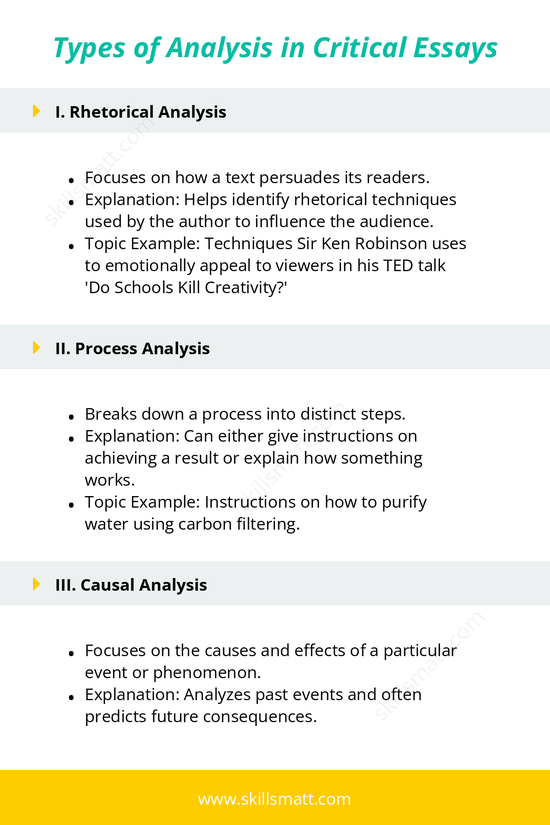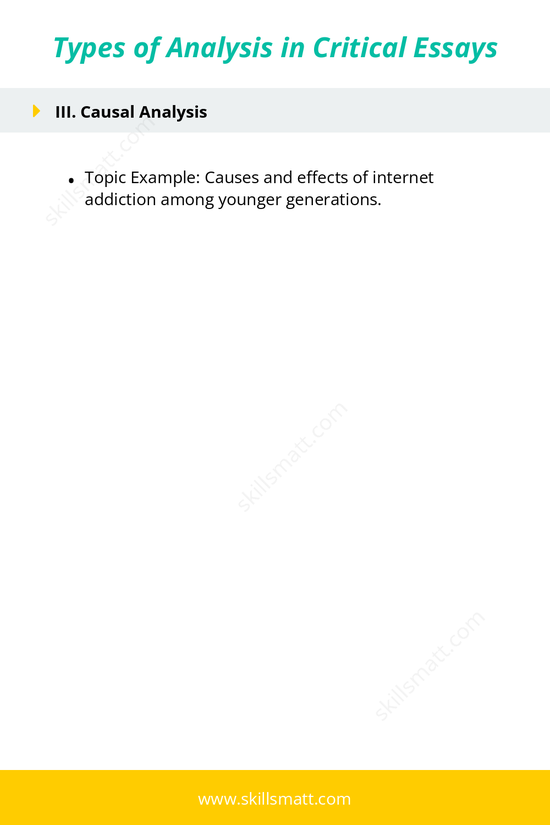Types of Analysis in Critical Essays
I. Rhetorical Analysis
- Focuses on how a text persuades its readers: This analysis evaluates the persuasive elements in a text and how they influence the audience.
- Explanation: Helps identify rhetorical techniques such as ethos, pathos, and logos used by the author to influence the audience.
- Topic Example: Techniques Sir Ken Robinson uses to emotionally appeal to viewers in his TED talk 'Do Schools Kill Creativity?'
II. Process Analysis
- Breaks down a process into distinct steps: This type of analysis explains how something works or the steps involved in achieving a specific outcome.
- Explanation: Can either give instructions on achieving a result or explain how something works.
- Topic Example: Instructions on how to purify water using carbon filtering.
III. Causal Analysis
- Focuses on the causes and effects of a particular event or phenomenon: Causal analysis investigates the relationship between events, exploring their causes and consequences.
- Explanation: Analyzes past events and often predicts future consequences.
- Topic Example: Causes and effects of internet addiction among younger generations.
IV. Critical Analysis
- Aims to evaluate a work and promote a deeper understanding: Critical analysis involves a detailed assessment of a text or work, focusing on its strengths, weaknesses, and overall effectiveness.
- Explanation: Involves assessing the strengths and weaknesses of a text or work.
- Topic Example: Critical evaluation of a novel's narrative structure and character development.


